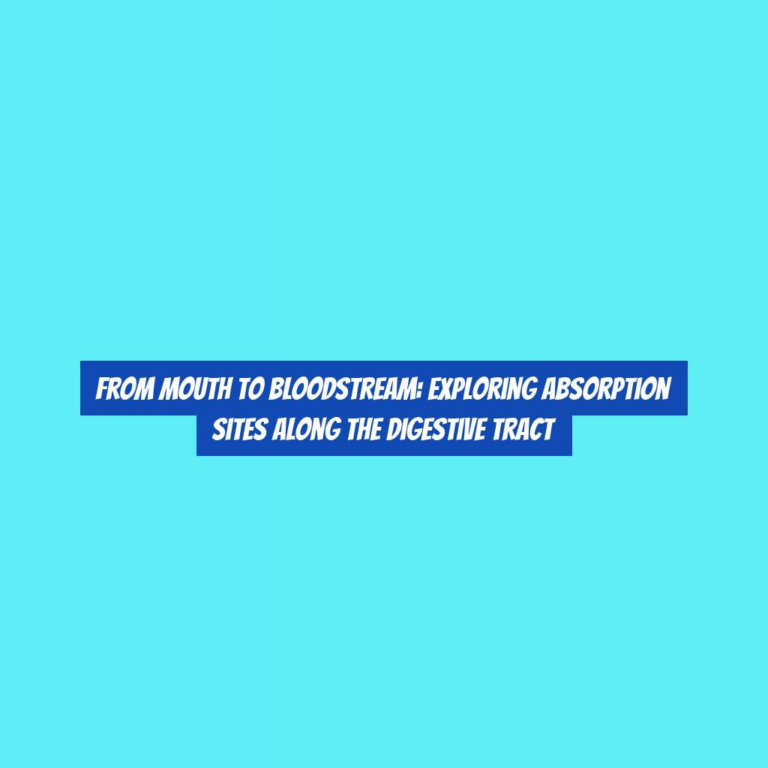Unlocking the Power: Enzymes and Digestive Juices in the Digestive Process
YouG??ve probably never given much thought to the intricate dance of enzymes and digestive juices that takes place in your body every time you eat. But understanding this process is crucial to unlocking the power of your digestive system.
From the moment food enters your mouth, a series of complex chemical reactions and secretions work together to break down what youG??ve eaten into nutrients that can be absorbed by your body.
Whether itG??s the role of saliva in initiating the digestive process or the specific functions of pancreatic enzymes, each step plays a vital part in ensuring that your body can extract the energy and nutrients it needs from the food you consume.
And as youG??ll soon discover, thereG??s much more to this process than meets the eye.
The Role of Saliva in Digestion
Saliva plays a crucial role in digestion by moistening food and beginning the breakdown of carbohydrates through the action of the enzyme amylase. As you chew your food, saliva is secreted from salivary glands in your mouth. This watery substance moistens the food, making it easier to swallow and aiding in the initial steps of digestion. The enzyme amylase, present in saliva, starts breaking down complex carbohydrates into simpler sugars. This process is the first step in the bodyG??s ability to extract energy from the food you eat.
Additionally, saliva contains antibacterial properties that help protect your teeth and gums from harmful bacteria. It also helps to maintain the pH balance in your mouth, preventing acid buildup that can lead to tooth decay.
Furthermore, the act of chewing and the presence of saliva stimulate the production of gastric juices in the stomach, preparing the body for further digestion.
Enzymatic Breakdown in the Stomach
As food enters your stomach, the acidic environment activates the enzyme pepsin, initiating the breakdown of proteins into smaller peptides. Pepsin is produced in an inactive form called pepsinogen, which is converted to pepsin by the hydrochloric acid in the stomach. Once activated, pepsin starts cleaving the peptide bonds in proteins, breaking them down into shorter chains of amino acids called peptides. This process is crucial for the digestion and absorption of proteins in your body.
The stomach also secretes gastric lipase, an enzyme that aids in the digestion of fats. Although most fat digestion occurs in the small intestine, gastric lipase can start breaking down some dietary fats while in the stomach. This enzyme specifically targets medium and short-chain fatty acids, beginning the process of lipid digestion before the partially digested food moves on to the small intestine.
In addition to enzymes, the stomachG??s churning motions help mix food with gastric juices, further aiding in the breakdown of food particles. This mechanical digestion, combined with enzymatic breakdown, prepares the food for further processing in the small intestine.
Pancreatic Enzymes and Their Functions
After the initial breakdown of food in the stomach, the pancreas secretes a variety of enzymes that play crucial roles in further digestion and nutrient absorption in the small intestine. These pancreatic enzymes are essential for breaking down carbohydrates, proteins, and fats, ensuring that the nutrients from the food you consume can be properly absorbed and utilized by your body.
-
Imagine not being able to digest carbohydrates properly, leading to discomfort and bloating after every meal. Pancreatic amylase, one of the key enzymes secreted by the pancreas, helps break down carbohydrates into simple sugars, allowing for smoother digestion and reducing digestive discomfort.
-
Picture the impact of inadequate protein digestion on your overall health. Proteins are vital for various bodily functions, and pancreatic proteases are responsible for breaking down proteins into amino acids, which are then absorbed into the bloodstream to support your bodyG??s growth, repair, and maintenance.
-
Consider the consequences of impaired fat digestion. Without the action of pancreatic lipase, fats would remain undigested, leading to malabsorption of essential fatty acids and fat-soluble vitamins, ultimately affecting your overall health and well-being.
Action of Bile in Digestive Processes
Upon entering the small intestine, bile, produced by the liver and stored in the gallbladder, plays a crucial role in the digestion and absorption of fats. As you consume a meal containing fats, bile is released into the small intestine where it emulsifies the large fat globules, breaking them down into smaller droplets. This process, known as emulsification, increases the surface area of the fat, allowing pancreatic lipase (an enzyme) to efficiently break down the fats into fatty acids and glycerol. Without this emulsification process, the pancreatic lipase wouldnG??t be able to access the large fat molecules effectively.
Furthermore, bile salts aid in the absorption of fatty acids, cholesterol, and fat-soluble vitamins (A, D, E, and K) by forming micelles. These micelles are small clusters of bile salts that surround the products of fat digestion, enabling them to be transported to the surface of the intestinal cells for absorption.
Absorption of Nutrients in the Small Intestine
The role of bile in emulsifying fat and aiding in the absorption of fatty acids and fat-soluble vitamins directly impacts the subsequent absorption of nutrients in the small intestine. As the chyme, a semi-fluid mass of partly digested food, enters the small intestine, the emulsification of fats by bile salts enhances the action of pancreatic lipases, breaking down fats into fatty acids and glycerol for absorption.
HereG??s why this process is crucial:
-
Efficient Nutrient Absorption: The emulsification of fats by bile ensures that fat-soluble vitamins such as A, D, E, and K can be absorbed effectively, contributing to overall health and well-being.
-
Optimal Energy Utilization: The absorption of fatty acids in the small intestine provides a source of energy for your body, supporting your daily activities and metabolic functions.
-
Vital Nutrient Transport: The efficient absorption of nutrients in the small intestine is essential for transporting essential fatty acids and fat-soluble vitamins throughout your body, supporting various physiological processes.
Understanding the significance of bile and the subsequent absorption of nutrients in the small intestine highlights the intricate and vital role of the digestive process in maintaining your overall health.
Conclusion
So, next time you eat, remember the incredible work your bodyG??s enzymes and digestive juices are doing to break down your food and extract vital nutrients.
From the moment you take that first bite, the digestive process is already underway, thanks to the power of enzymes and digestive juices.
ItG??s truly amazing how your body works to ensure that you get the energy and nourishment you need from the food you eat.
Appreciate your bodyG??s incredible digestive system!




